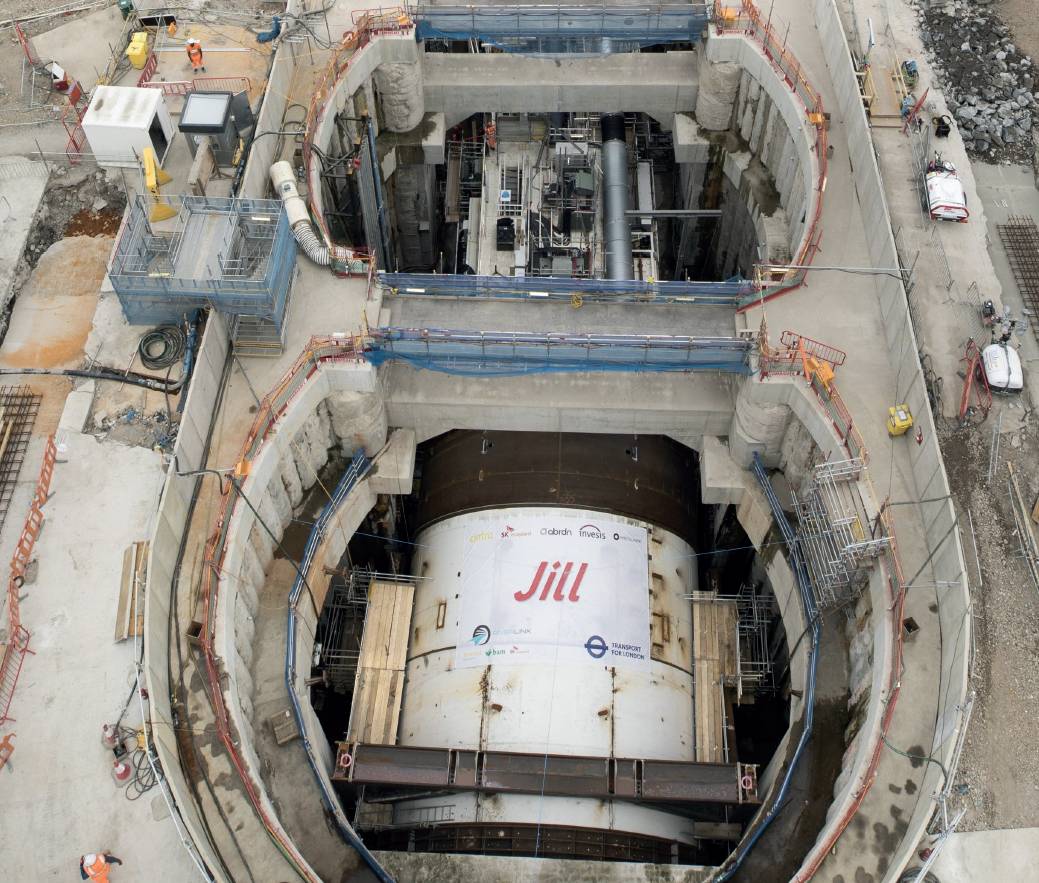The biggest issues of the month explored | Tunnels
Inside Track
Tunnels
Silvertown Tunnel costs jump by £2M and opening date slips once again
Inflation and skilled labour shortages blamed but increase could be clawed back
By Rob Hakimian
Transport for London has said that the estimated final cost of London’s Silvertown Tunnel has increased by £2M, but that it is confident this can be clawed back.
The road tunnel under the River Thames in east London is being promoted by TfL and built by Riverlinx CJV consortium under a design, build, finance and maintain contract. Riverlinx is a joint venture between Bam Nuttall, Ferrovial and SK Ecoplant.
 The final cost of the Silvertown Tunnel is now forecast at £179M
The final cost of the Silvertown Tunnel is now forecast at £179M
Riverlinx is financing most of the scheme’s costs, which will be repaid by TfL over 25 years in availability payments subject to Riverlinx’s maintenance performance.
Progress of the 1.4km twin bore road tunnel over the last six months has included the completion of the second bore 62 days ahead of schedule. The Boord Street foot and cycle bridge opened in June.
The agenda for the meeting of TfL’s programmes and investments committee on 5 October revealed that the estimated final cost of the tunnel is now forecast at £179M, £6M more than the approved budget of £173M and a £2M increase on the previous quarterly forecast of £177M.
TfL confirmed the cost increase was due to “a reassessment of some of the key risks, which are being managed and mitigations developed.”
It added: “We continue to seek opportunities to reduce cost and risk exposure, which should be achievable to bring us back in line with the authority [budget].”
To date, £117M has been spent on the project and another £62M is forecast to be spent before completion.
Despite the £2M increase, the forecast spend is down from the peak cost forecast of £186M from earlier this year. This followed revelations in February that the 1.4km tunnel’s capital costs were running £13M over budget, according to meeting papers released ahead of its programmes and investment committee meeting on 1 March. That figure represented a £1M cost hike on the previous update in December.
“The main change in EFC [estimated final cost] since the last report is owing to further inflationary pressure”, TfL said.
It also revealed the opening date had been pushed back with the tunnel not expected to be open until June [2025], having previously been moved from April to May.
The cause of these delays was attributed to shortages of skilled labour and the supply of construction materials, which had resulted “in the permit to use date moving from April to June 2025”.
Since then, the target opening date has slipped from July to September 2025.
TfL said the latest delay was caused by “a change in programme sequencing to allow for equipment installation to take place” after the removal of the tunnel boring machine (TBM) from the tunnel.
TfL stated: “Both TfL and Riverlinx are working hard to bring the permit to use back into quarter 1, 2025/26 […] Mitigations are underway to allow for some parts of the TBM to be removed back through Greenwich rather than Silvertown. These have already reduced the potential impact of the equipment installation from 49 to 18 days.”
Separately, TfL is seeking approval for an additional unbudgeted £2.7M from TfL’s financial authority and programme and project authority for associated bus infrastructure improvements around the Silvertown Tunnel.
Contracts for the bus services through Silvertown Tunnel were awarded to bus company Go-Ahead London this year.
The deal includes a commitment that all the buses on these routes will be zero emission from the start of operation and that appropriate driver and customer facilities will be provided.
The expanded scope for the buses and associated facilities will require an estimated further £2.7M and although this will be added to Riverlinx’s costs – it will be funded through TfL’s budget and business plan if approved.
TfL recently carried out a public consultation into its proposal to set up a shuttlebus service for cyclists through both the Silvertown and Blackwall tunnels, which closed on 10 September.